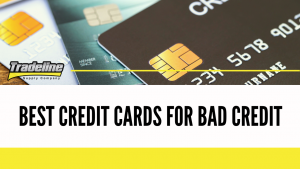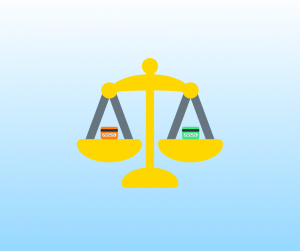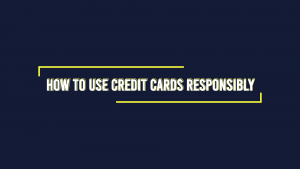Best Rated Credit Cards for Bad Credit in 2024

Financial Myths to Ignore
01/05/2024
Are Credit Sweeps Legal or Will They Get You in Trouble?
01/15/2024Having bad credit can make it challenging to get approved for a new credit card. Luckily, there are credit cards specifically designed for consumers looking to rebuild their credit and improve their financial situation.
These credit cards allow you to apply despite having a low credit score. Continue reading this guide to learn more about the best-rated credit cards for bad credit in 2024.
Searching for a Credit Card? Bad Credit? You Need THIS Guide
Several things can cause bad credit history. The most common causes include late payments or high credit utilization. Maintain consistency in the repayment of your bills, credit cards, and loans when trying to improve your bad credit history. Keep reading if you want to:
- Learn how to find the best credit cards you can get right now—even with bad credit.
- Learn how to end bad credit through credit cards
- Learn how to win a perfect credit score
Who Has Credit Card & Bad Credit? Here Are Bad Credit Examples
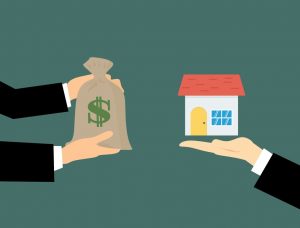
If you default on your mortgage and your house is foreclosed on, this will severely hurt your credit score.
According to Experian, a bad credit score is 579 or lower on the FICO scale. Bad credit scores can make it difficult for financial institutions and credit unions to offer you competitive interest rates on loans, mortgages, and credit cards.
You can order free annual reports from each of the three major credit bureaus: Equifax, Experian, and Transunion. Some bad credit examples include:
- Defaulting on loans, mortgages, and credit cards
- Too many late payments
- Filing for bankruptcy
- Mortgage foreclosure
- Repossession of a financed property like a car, furniture, etc.
Credit Countdown Video: Get a Credit Card Even With Bad Credit
Credit expert John Ulzheimershows you how to get a credit card even though you have bad credit.
TIMESTAMPS
0:00 Intro
0:52 Bad credit defined
1:16 Elite credit scores
1:34 The cost of credit card debt
2:07 Why people with poor credit have limited credit card options
3:13 Examples of credit card issuers for prime and subprime consumers
4:39 Options for unbankable consumers
5:05 Summary: credit cards for bad credit
Ratings on Best Credit Cards for Bad Credit
Understanding which credit card company is most likely to accept your bad credit history is essential when searching for your next card. Applying for cards you know you won’t get approved for causes unnecessary credit inquiries.
Some credit card companies offer cards tailored explicitly for borrowers with certain types of bad credit. It’s also essential to understand the benefits each card may offer, such as rewards points or no annual fees.
Best After Bankruptcy Credit Cards
You are less likely to qualify for credit cards or loans after bankruptcy because it significantly damages your credit scores. However, there are credit cards designed to help you gain credit after bankruptcy. In contrast to using prepaid and debit cards, credit cards allow you to establish a positive credit history again after bankruptcy. Among the best after-bankruptcy credit cards are:
- Discover it® Secured Credit Card
- Petal® 1 “No Annual Fee” Visa® Credit Card
- OpenSky® Secured Credit Visa® Card
Best Unsecured Credit Cards with Bad Credit
An unsecured credit card lets you borrow money against the credit limit provided by the issuer. Credit cards of this type can help you improve your credit score and effectively rebuild your bad credit history. Some of the best unsecured credit cards for bad credit include:
- Credit One Bank® Platinum Visa®
- Total VISA® Credit Card
- Milestone® Mastercard®
- Indigo® Mastercard®
Best Guaranteed Approval Credit Cards
Certainty of approval is the unique feature that attracts people towards credit cards. This benefit allows you to access a credit line without any pre-qualification. This makes it an excellent card for rebuilding your bad credit track record. The best-guaranteed approval credit cards include:
- First Progress Platinum Select Mastercard® Secured Credit Card
- OpenSky® Secured Visa® Credit Card
- First National Bank of Omaha Secured Visa® Card
- OakStone Platinum Secured Mastercard®
- OneUnited Bank Unity Secured Credit Card
Best Bad Credit No Annual Fee Credit Cards
Many credit card providers require an annual payment to continue using their cards. Fortunately, that isn’t the case for all credit cards. Here are the best credit cards for those with bad credit that also offer no annual fee:
- Discover it® Secured Credit Card
- BankAmericard® Secured Credit Card
- Navy Federal nRewards Secured
Best Bad Credit Rewards Credit Cards
Some credit cards offer a wide range of benefits and rewards programs. These include air miles, cash back, and rewards points. Some cards also offer bonus purchase periods and online shopping portals. Here are the best rewards credit cards for people with bad credit:
- Bank of America® Customized Cash Rewards Secured Credit Card
- Credit Builder Card Secured Credit Card
- Credit One Bank® Platinum Visa® for Rebuilding Credit
Six Ways to End Bad Credit Through Credit Cards
There are several ways you can work towards fixing your bad credit by utilizing credit cards responsibly. By demonstrating that you can handle debt appropriately and make on-time payments, your credit score will begin to improve. Here are our best tips to consider:
1. Learn Your Credit Limits
Maxing out your credit cards is an indication of debt trouble. If you don’t know your credit card limits, contact the credit card issuer and inquire further. Learning this information will help keep your debt utilization under control and avoid future penalties.
2. Set Up a Budget
Be aware of how much you can spend to pay off all debts and bills before any additional charges are accrued. Creating a monthly budget and understanding all of your expenses is an excellent habit to form. Try only to charge the amount you know you’ll be able to commit to paying off at the end of your billing cycle, or ideally even before.
3. Set a Reminder for Bill Payment
To keep track of due dates and the number of bills, you can set up a reminder on your phone or calendar. Keeping track of due dates and bills will ensure you avoid late fees. Late payments are one of the most common reasons for bad credit scores.

Set up bill pay reminders or automatic payments so that late payments don’t damage your credit score.
4. Keep Credit Card Bills Under Control
You should avoid carrying a balance on your cards to rebuild a better credit score. Consider making multiple payments throughout the month, so it doesn’t feel like a lot all at once. If you can’t afford to repay in full, do not continue charging more to your card.
5. Avoid Too Many Hard Inquiries on Your Credit Report
When you apply for a new credit card or loan, the issuing bank will conduct a hard inquiry to review your credit score and credit history. They will also use it to determine interest rates. Too many hard inquiries on your credit can negatively impact your credit score. This is why you should try to limit hard inquiries when possible.
6. Limit Your Credit Utilization
Your credit utilization ratio (CUR) measures how much debt you have in relation to your total available credit. It is the result of dividing your credit balances by your credit limits, usually expressed as a percentage. A CUR under 20-30% (ideally under 10%) will help increase your FICO score, while a CUR above that level brings down your score.
Twelve Ways to Win a Perfect Credit Score
It will be easier for you to find competitive interest rates on loans, mortgages, and credit cards if you have a stellar credit score. Here are twelve tips to help you get closer to a perfect score:
1. Pay Down High-Balance Credit Cards
Consider paying off high-balance credit cards first if you want to boost your credit score quickly. Each credit card is assigned a credit utilization ratio, and carrying high balances can lower your credit score. As a result of paying off a few high-balance credit cards, you’ll see your utilization ratio on each card drop, thereby improving your credit score.

Paying down high balances and keeping them low by paying your card off multiple times per month can boost your credit score by lowering your credit utilization.
2. Make Multiple Payments Monthly
Another excellent way to boost your credit score is to pay your bills on time. You reduce your credit balance before the statement closing date by paying more frequently throughout the month. Your credit utilization ratio will then fall due to lower balances, which will positively affect your credit score.
3. Set up Automatic Bill Payments
Automatically paying your credit cards and loan accounts can significantly improve your credit score. Even a single late or missed payment can adversely affect your credit rating. By setting up automatic payments, you will not forget to make payments on time. This is also helpful to prevent late fees, penalties, and interest rate increases.
4. Transfer Balances to a Card With a Lower Interest Rate
Consider transferring your balances from high-interest credit cards to a card with a lower interest rate. To qualify for a balance transfer credit card, you must have decent credit.
Usually, this type of credit card typically offers a special introductory offer of 0% APR on balance transfers for the first few months. Before committing to a balance transfer, make sure you’ll be able to pay off the balance before the introductory period ends. If you can’t handle an additional credit responsibly, avoid this credit hack.
5. Pay Down High-Interest Balances First
Paying off high-interest balances first will allow you to save money that you can use to pay down debt faster. Essentially, you work your way from the credit cards with the highest interest rates down to the lowest, hence the term “debt avalanche.”
6. Delete Collections From Your Credit Report
A missed payment can lead to your account being negatively reported to the credit bureaus. If you have a collection account on your report, it can lower your credit score. Depending on the circumstances, you can have the collections account removed from your report.
If it has been misreported, you can dispute it with any of the three credit bureaus. If the collection account is legitimate, automatic removal may take up to seven years after the first delinquency date. As an alternative, you can negotiate with your lender a “pay for delete” agreement to stop reporting the collection to the credit bureaus.
7. Increase Your Credit Limit
You can improve your credit score by increasing your credit limit, which will improve your utilization ratio. You can request a credit limit increase after showing the lender you are a responsible cardholder for several months. The usage ratio of your debt, which accounts for about 35% of your FICO score, will significantly improve if the debt-to-credit ratio is below 30%, which will result in a boost in your credit score.
8. Negotiate Lower Interest Rates With Your Credit Card Issuer

Your credit card lender may be willing to negotiate a lower interest rate if you ask for it.
Are you aware that you can negotiate a lower interest rate with your credit card issuer? The only step you need to take is to contact your card issuer to request that your interest rate be lowered. Let them know that you have been a faithful customer by paying your bills on time, and let them know why you want the interest rate decreased. Lowered interest rates can significantly reduce the amount you pay in interest, which allows you to repay your debts faster.
9. Pay Off Low-Balance Accounts
The number of your accounts with balances significantly affects your overall credit utilization ratio. The fewer accounts you have with balances, the better your credit utilization ratio. Pay off low-balance accounts as quickly as possible to improve your credit score.
10. Dispute Inaccurate Information on Your Credit Report
A credit score can be lowered by erroneous information such as unauthorized credit inquiries and wrongful collections accounts. Get a free copy of your annual credit report from any of the three credit bureaus and check it for errors. Any incorrect information can then be disputed by following instructions on their website.
11. Consider Piggybacking on Someone With a Good Credit

Piggybacking on someone’s credit can help you build credit history.
Consider piggybacking on the good credit of a family member or friend if you have a bad off credit rating. Piggybacking refers to using another’s good credit score to help you build your credit score. You can either get a co-signer, become an authorized user, or open a joint account together. Before applying for a loan or credit card, be sure to discuss it with your co-signer first.
12. Get a Secured Credit Card
You can build your credit history using a secured credit card since it requires a security deposit. If you fail to repay your debts, your deposit can be used as collateral to secure the bank’s funds.
Essential Credit Cards for Bad Credit
Securing a credit card for bad credit is one of the most important things for you to do to build your credit score. You can find many options available to choose from that are essential for you. The following credit cards should come in first place:
1. Credit Builder Secured Credit Card
CB Card, LLC offers a secured personal credit card to customers with a thin credit history. It reports to all three major credit bureaus within one week of acceptance.
You can open this credit-building secured credit card with as little as a $200 deposit. You can build credit by making purchases with your card and paying the bill every month.
[Disclosure: We may receive compensation if you sign up through our link.]
2. Credit One Bank Platinum Visa for Rebuilding Credit
The Credit One Platinum Visa for rebuilding credit is an unsecured credit card to help you rebuild your credit without making any deposits. You can earn 1% cash back rewards on eligible products and services like grocery purchases, gas, TV services, and phone bill.
0% Fraud Liability prevents you from being held responsible for unauthorized charges. With Credit One Bank’s mobile app, you can manage your account on the go and schedule your monthly payments.
3. OpenSky Secured Visa Credit Card
With a low annual fee of $35 and a regular APR of 17.39%, the OpenSky Secured Visa Credit card is one of the most flexible secured credit cards available. This is an excellent way to rebuild your credit standing and requires a low refundable security deposit as low as $200.
OpenSky reports your credit history to the three major credit bureaus to improve your credit score. Their dedicated credit education page also provides credit education and tips to assist with your credit rebuilding process.
Fundamental Credit Strategies for Bad Credit
If you have bad credit, you can do a few things to improve your score. Here are some essential credit card strategies for bad credit:
1. Pay Your Bills on Time
One of the most important things to improve your credit score is paying your bills on time. Late payments will lower your score and could damage your credit history. Try to set up automatic payments so you never forget to pay your bills on time.
2. Keep Your Balances Low
Another critical factor in improving your credit score is keeping your balances low. When you owe too much money, it lowers your credit utilization ratio and negatively affects your score. Try to keep your credit utilization below 30% by paying your monthly payments in full each month.
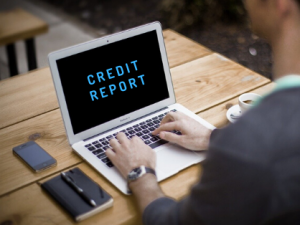
Review your credit reports regularly to check for incorrect information.
3. Review Your Credit Reports
It is a good idea to review your credit reports annually. Check your credit report for any errors or misinformation that might lead to you owing more than you should or lowering your credit score, and then take action to correct these errors.
4. Avoid Hard Inquiries
A hard inquiry on your credit report occurs when you apply for a new credit card or loan. Having too many hard inquiries over a short time can lower your score.
5. Keep Old Accounts Open
While you’re working to rebuild your credit score, keeping old accounts open even if you’re not using them is a good idea. 15% of your credit score is determined by the length of your credit history, meaning the older your accounts, the better.
Build a Portfolio of Secured & Unsecured Debt
When it comes to your credit, it’s essential to understand the difference between secured and unsecured debt. Secured debt is debt backed by an asset, such as a house or a car. If you don’t make your payments, the creditor can take the asset and sell it to pay off your debt. Secured debt can be an excellent way to start rebuilding your credit after bankruptcy.
Unsecured debt, such as a standard credit card or a personal loan, is not backed by an asset. If you don’t make your payments, the creditor can’t take anything from you to pay off your debt. Both unsecured and secured debt will negatively impact your credit score if you are late with a payment.

Secured credit cards allow consumers with bad credit to open credit cards by paying a security deposit.
Secured Debt Pros:
- Usually offer lower interest rates
- It can help build your credit score
Secured Debt Cons:
- Requires collateral
- May have lower limits
Unsecured Debt Pros:
- Requires no collateral
- No risk to personal property
Unsecured Debt Cons:
- May have higher interest rates
- Defaulting on payments will negatively affect your score
Conclusion
Credit cards can be challenging to qualify for if you have a bad credit score. Thanks to the best-rated credit cards for bad credit, you can get a credit card regardless of your past credit history to work towards rebuilding your credit score. These cards require no particular credit score and report payments to all three major credit bureaus.
You can rebuild your bad credit score by making timely payments with bad credit credit cards. A bad credit credit card can help you get back on track to achieve a better financial future.

